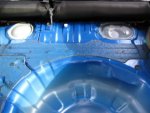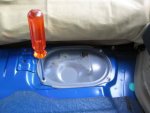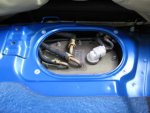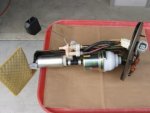I recently did the 100k service for this old car, timing belt, pulleys, tensioner, coolant flush, water pump, etc. Clean UOA, no coolant in the oil, no oil in the coolant, head gaskets are original and OK. Running like new with good power & fuel economy. Stick shift with new clutch installed @ 77k miles.
Just recently an intermittent problem started: sometimes if you apply more than 1/2 throttle at around 2,000 RPM the engine surges and hesitates. While it's doing this, if you let up on the throttle a bit the problem stops and it runs smooth. If you push down on throttle a bit, it suddenly "kicks in" and pulls hard like it should. This problem doesn't happen all the time, it's intermittent. Doesn't depend on whether the engine is cold or warm.
My initial guess is the throttle position sensor has developed a dead spot. I am going to inspect it, see if I can open it up to expose the internals, clean contacts, etc. Any other ideas?
Just recently an intermittent problem started: sometimes if you apply more than 1/2 throttle at around 2,000 RPM the engine surges and hesitates. While it's doing this, if you let up on the throttle a bit the problem stops and it runs smooth. If you push down on throttle a bit, it suddenly "kicks in" and pulls hard like it should. This problem doesn't happen all the time, it's intermittent. Doesn't depend on whether the engine is cold or warm.
My initial guess is the throttle position sensor has developed a dead spot. I am going to inspect it, see if I can open it up to expose the internals, clean contacts, etc. Any other ideas?




